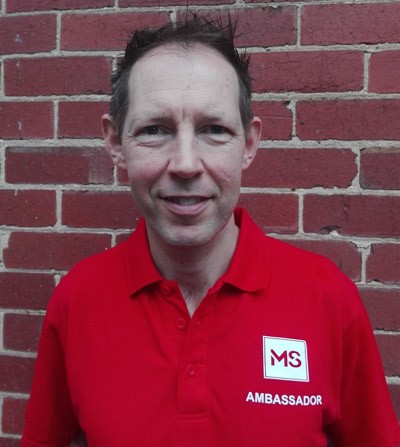
Antony was a few days short of his 30th birthday and supremely fit when his vision went blurry during a jog is his then home country of Japan. MS is less common in Japan than in Australia, and appears to have some link with Vitamin D levels. as it is more common in cooler darker areas. When the diagnosis was confirmed after about three months, he returned to Australia to work through his diagnosis, and having been told to rest, pursued his interest in photography with a trip to Timbuktu ( and reflected it may not have been what the doctor quite intended!).
Antony explained that, as an auto-immune disease, MS impacts in different intensity in different people over variable timelines. He feels he has been luckier than others as he has been able to lead a fairly normal career and family life, when he knows some people’s disorder strips them of the physical and mental capacity to fulfill these goals.
After asking members for their impression of what MS means to them, he explained that common symptoms - extreme fatigue in the latter part of the day, sporadic and sudden onset visual dysfunction, muscle malfunction, nerve tingling in the extremities, pain in various parts of the body, blurred speech, deterioration in mental health and sexual function - are all caused by the deterioration of the myelin sheath surrounding and protecting nerves in the body.
Antony feels blessed to have had such a good run, but it was clear that the risk of a sudden downturn is always on his mind, and he works hard to enhance his health through a careful diet, active physical and mental fitness, together with help from carefully sought out medical specialists. Having worked in a number of Asian countries, Antony now works at Asialink, connecting Australian businesses with opportunities in Asia.
Treatment has changed considerably, and now Antony’s method is a whole day IV infusion every 6 months. Antony has been told a cure is possible within his lifetime and also confided that research shows MS has been around for hundreds of years, but there was no specific pharmacotherapy until about 30 years ago.
Other social issues that impact are difficulties in obtaining personal insurance, which is frustrating to him.
Thank you Antony for a deep and thoughtful insight into this curious complication you have had join your life, and we thank you for all the work you do to help others with MS.
Gilly

